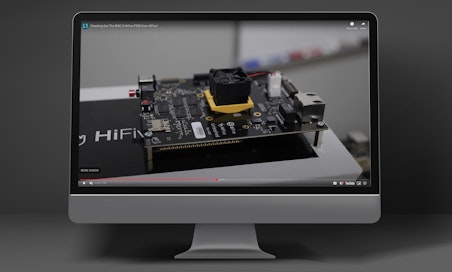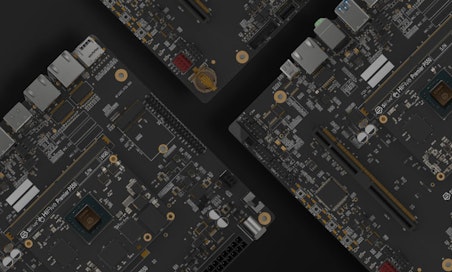Careers at SiFive
Don't just watch the future unfold.
Help us lead the way.

Just watching the future unfold?
Or do you want to help lead the way?
At SiFive, we see a future filled with endless possibilities—for technology pioneers and for you. As the driving force behind the RISC-V revolution, we're transforming chip design and shaping the world of computing. Our innovations power advancements in AI, automotive, IoT, mobile, and beyond.
Join us, and you'll collaborate with industry leaders and top global brands to push the boundaries of what's possible. Your skills, passion, and expertise will fuel groundbreaking discoveries and drive more design wins that make a real impact.
With strong financial backing and unicorn status, we have the resources, respect, and support to keep innovating. If you're ready to be part of the best team, work with world-class clients, and create the future of computing, explore our opportunities today.

Working at SiFive
Be heard. Be valued. Make an impact. Our core values cultivate a modern and inclusive culture.
At SiFive Inc., we understand the importance of health and welfare benefits to our employees and their families. That's why we provide diverse benefit plans, typically available only at larger corporations.
Collaboration with Leadership
Our leadership team consists of respected pioneers with a talent for solving complex challenges. You'll work in small, collaborative teams alongside world-renowned innovators, contributing as an equal. Plus, you'll have the opportunity to partner with top semiconductor, consumer, and data center brands, shaping the future of technology together.

Great ideas can come from anywhere
Our drive to tackle any challenge ensures that the best idea always prevails. You'll experience the fulfillment of contributing to solutions that truly make an impact.
We give our teams the trust and autonomy they deserve.
You're one of the best at what you do, so we won't tell you how to work. You'll get support and collaboration when needed and focus when you want it.
Ready to change the world?
Many of our top team members joined us from the world's leading tech companies to help drive our mission forward. SiFive is poised to shape a scalable future, taking on some of the industry's toughest challenges. Explore our open roles and be part of the innovation pushing the world ahead.

Advancing the RISC‑V Revolution
SiFive leads RISC-V innovation, delivering high-performance, customizable core IP. Explore how open-standard architectures drive efficiency, flexibility, and scalability.








